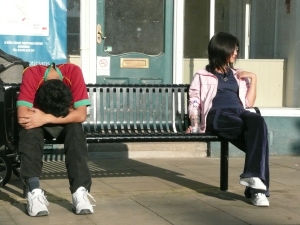An interesting post on MindHacks argued against Maggie Jackson‘s recent book Distracted: The Erosion of Attention and the Coming Dark Age. Maggie claims that with the development of many new technologies that enable us to multi-task, we are getting more stressed and less creative. Vaughan Bell on MindHacks says that the argument is short-sighted and that even before the digital-age we were people who multi-tasked. At least now we have the ability of turning off the devices and thus, turn off the interruptions.
I like some of Vaughan’s argument. He starts by giving example of a woman from a poor neighbourhood who needs to tend to her four children, maintain the house (shopping, cleaning) and take care of a business she runs from the household. The majority of the people in the world who are still not part of the digital age are in one way or the other in that woman’s situation. And thus, saying that multi-tasking is a relatively new thing is not done with.
But he misses to counter some important points from Maggie’s argument. According, to Vaughan it’s easy to see that women may have gotten their brains wired to multi-task but exactly the opposite can then be assumed to be true for men. Men were primarily, hunters and/or gatherers, they had a single objective: feed the family. Thus, they must have got their brains wired to focus on a single task, no?
I’d also like to refute an argument which Maggie makes:
When you’re scattered and diffuse, you’re less creative. When your times of reflection are always punctured, it’s hard to go deeply into problem-solving, into relating, into thinking.
Creativity is the capacity to put together two or more ideas (or things) in a way that no one has before. In that respect, in the digital age I’d say that we have more opportunities to be creative but at the same time, because the same resources are available to a greater audience we have to think much harder and more often about a ‘new way’. That may translate into more time devoted to thinking about the problem but there it doesn’t mean that that time must be all together. I can think of many instances where punctuated thought has brought me more ideas than hours of contemplation.
Today science has come to a point where one needs to be able to think about many things (and use the many resources/tools) at a time to be able to solve the highly complex (and inter-disciplinary) problems. In this case, I’d say that the better we may get at multi-tasking (with or without the help of the new technology) the better it may be for the scientists.
Even then, I have to agree to a few arguments that Maggie makes:
We are programmed to be interrupted. We get an adrenalin jolt when orienting to new stimuli: Our body actually rewards us for paying attention to the new. So in this very fast-paced world, it’s easy and tempting to always react to the new thing. But when we live in a reactive way, we minimize our capacity to pursue goals.
That makes sense. Yes, the multi-tasking on the internet (email, facebook, twitter) might be reducing our capacity to pursue goals. We should realise this in our browsing habits and avoid those distractions. But other than those distractions, that very habit of multi-tasking can prove to be a boon for many researchers, writers, readers or anyone who needs to be able to deal with a lot of data (opinions, facts, ideas) that keeps coming their way during their browsing experience.
Maggie’s comment on Vaughan’s article is a good way of summing things up:
The “concentration oasis” is a myth I don’t subscribe to. And yet it’s truly short-sighted to fail to consider the costs of cultivating a culture of distraction and inattention.
A culture of distraction and inattention can breed from multi-tasking only if our multitasking is left unregulated. I think there is value in multi-tasking but one must teach oneself how to multi-task in a sensible way.
Also posted at the CriticalTwenties blog.
























